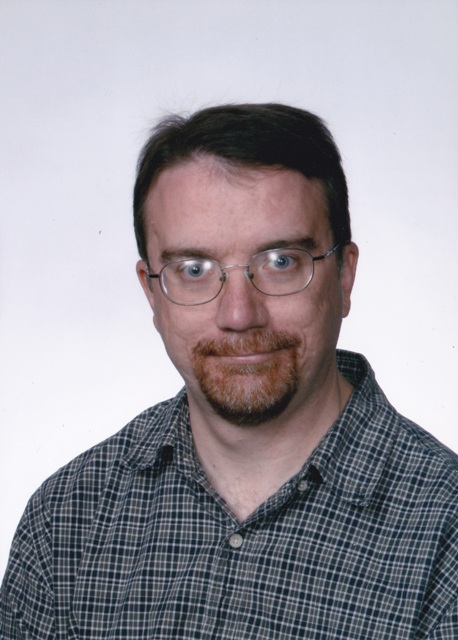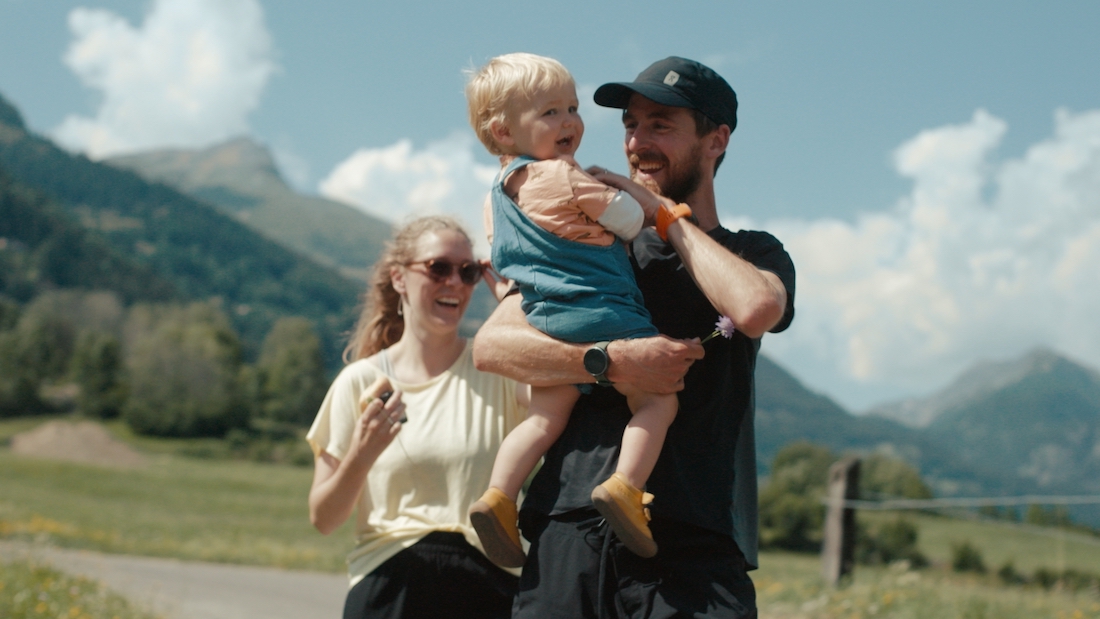Take a look at your calendar. Look at the month of January and think of all the things that happened to you or other people during that month. Now, imagine running and hiking the length of two marathons a day for each of those days, from January 1st through January 31st. Two marathons. Every day. That’s 52.5 miles a day. Impossible to imagine, right? But that’s basically what ultrarunner Karel Saabe did in the summer of 2021 at Via Alpina in Switzerland. His intention: to set the FKT (fastest known time) for that particular trail.
Over the course of its 45-minute running time, Tom Gibbons’ “Solace” depicts Saabe’s efforts as he battles sleep deprivation, hail storms, illness, and potentially dangerous peaks and valleys. Traveling with him is a very devoted camera crew and his wife and one-year-old. These people are all key to making this journey work because the encouraging word or smile can go a long way. The endurance is physical, but the ability to overcome it all is strictly mental, according to Saabe, a nice, bearded gentleman who spent an “Into The Wild”-like existence in New Zealand and knows a thing or two about how to navigate and appreciate nature.
Gibbons’ film often feels like a collage of sorts, depicting the journey with a variety of different cameras and formats. The film clocks down its days on the trail through multiple montage sequences, giving us a day-by-day account of all the treacherous moments, as well as the necessary resting and mealtimes it takes just to stay mentally and physically healthy. Saabe is always mindful of his family as he approaches a dangerous element and whether or not it is worth making the decision to move ahead, which makes him a reasonable and grounded kind of daredevil and one worth rooting for.
One might look at this as a “Free Solo” in miniature, another endurance doc designed to keep us on the edge of our seats as we watch someone dare to attempt the impossible. “Solace” earns our interest, though, through its concise storytelling and tight editing. There are enough moments of warmth and humor that help to make Saabe’s comments about the need for human connection palpable. We want to see him succeed, but there is also a lot to be said for the journey itself and its many different landscapes. It serves as a reminder to either get out and see more of the world or, at the very least, get out of the house once in a while, go for a walk and take in your surroundings.

Q&A with director Tom Gibbons
How did you and Sabbe find each other?
On Running (Karel’s sponsor) had approached Hillton (a production company based in Zürich that I had worked for in the past) to document Karel’s FKT attempt through the Alps. There was a lot of discussion regarding the scope of the production, but eventually, they opted to make a short-form documentary around the 20-minute mark. The idea was to have a very reduced crew, consisting of a directing DP and camera assistant, follow Karel and his team non-stop for five weeks straight. I was lucky to be considered able enough to take on the task and so just six weeks before the start of the run I was put in touch with Karel.
At the time he was extremely busy juggling preparations for the record attempt with his work as a dentist, so our calls were always quite brief. The first time we met in person and were able to talk extensively was the night before the start of the FKT in Italy, when we shot our first interview. Luckily, Karel is an incredibly humble person, and was willing to open up to me about his personal backstory and drive in life.
Can you walk us through a typical day of shooting? How was this production orchestrated in terms of who would be with Sabbe and when?
Karel’s routine during the 30-day trip would be to wake up at 4 AM, run for 15 hours with regular meet-ups with his support crew to eat, arrive at camp, eat and go straight to bed. I had a map of the route he was running and a GPS tracker to see where he was. I was constantly trying to establish how to hike or bike to the trail to get shots of him running by. This might seem fairly straightforward, but the Via Alpina trail runs through the most mountainous regions of Europe with little road access. Additionally, the GPS trackers didn’t always work, so often I found myself on a mountain top waiting for hours hoping he hadn’t already passed.
Did anything happen on Sabbe’s journey that the cameras were unable to capture?
Since we were only a two-person film crew living out of a van, we were extremely flexible and were able to follow the support crew closely for the duration of the record attempt. But still, there were certain key moments that happened in the mountains which impacted Karel and were crucial to the story that we weren’t able to capture. This forced us to get creative in the edit, so we could incorporate these moments into the film.
What was the editing process like? Was Sabbe ever involved?
I returned home with over 100 hours of footage and a deadline of eight weeks to get the film edited in. Luckily enough I had an incredibly talented editor, Dennis Gnoni, onboard who was key to developing the story and building a rounded narrative. We started off by figuring out which (filmed) situations we could create scenes out of that would drive the story forward and then putting them in an order which made the journey flow and gave the story drive. I’ll admit that we chose authenticity over truthfulness and took the liberty of rearranging some scenes so that they fitted the story arc better. For me, “Solace” is less about the pure documentation of a record-attempt, but more about making the journey within emotionally accessible to the viewer. Due to time limitations we were fortunate that Karel trusted us to carry out the intense editing process without his input. Luckily he liked the film.

What personal insights into this kind of journey did you get out of it? How does the movie speak to you?
At the outset I believed this journey was simply about being the fastest person to run the Via Alpina but it involved so much more. It became a story about the strength and support of a team effort while discovering what your internal resources truly are.
On a personal level, making “Solace” has been one of the most fulfilling experiences of my film career so far. Hauling camera gear up and down mountains, be it in the pouring rain or dead of night, just to reach the peak and be greeted by the silhouetted Alps draped in the colors of dawn leaves you humbled.
I feel it’s easy to get lost in the mechanics of society, and it’s important as individuals to find a balance within. I’m aware that to many it may seem oversimplified but turning your phone off, going outside and surrounding yourself with nature can go a long way.
What’s next for you?
Besides commercial work, I’m currently working on a documentary about a migrant returnee from Senegal, who after unsuccessfully trying to reach Europe was forced to return to his homeland empty-handed. With nothing to show, he has been cast out from his family, who paid for his trip across the Atlantic until he repays his debt. While trying to make ends meet, he takes on a voluntary job as a neighborhood soccer coach, not only teaching kids the rules of the game but more importantly values in life.












